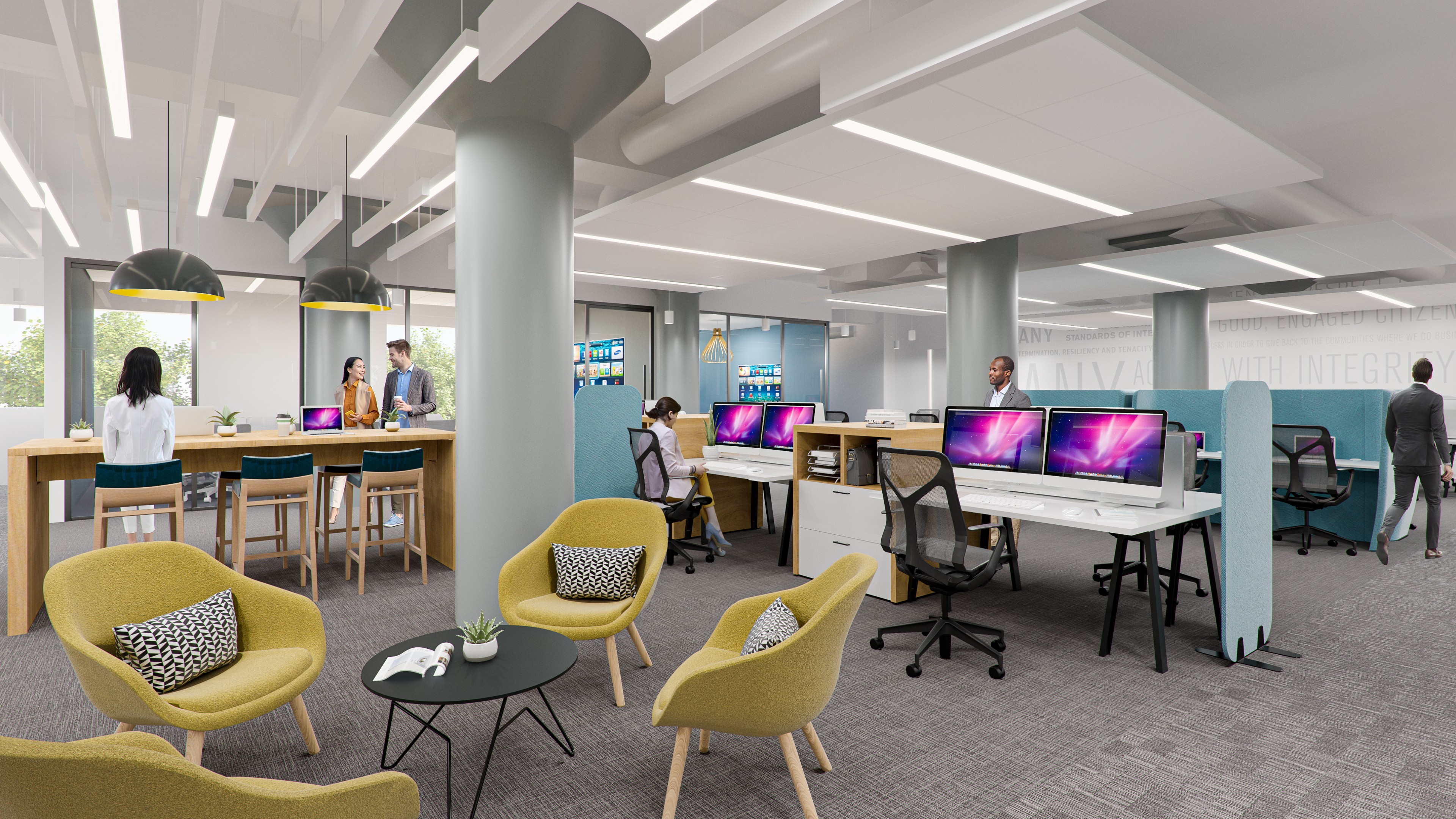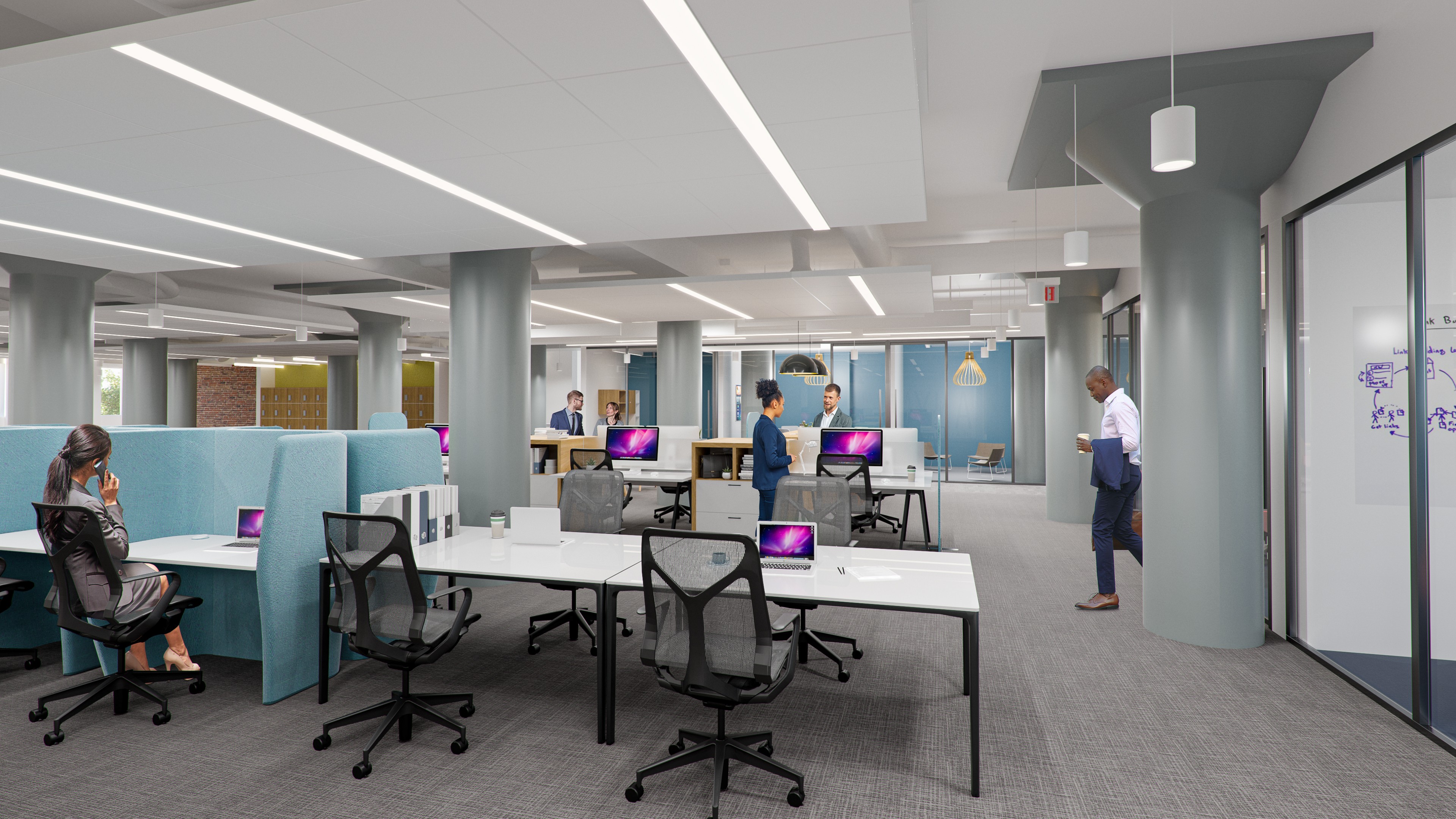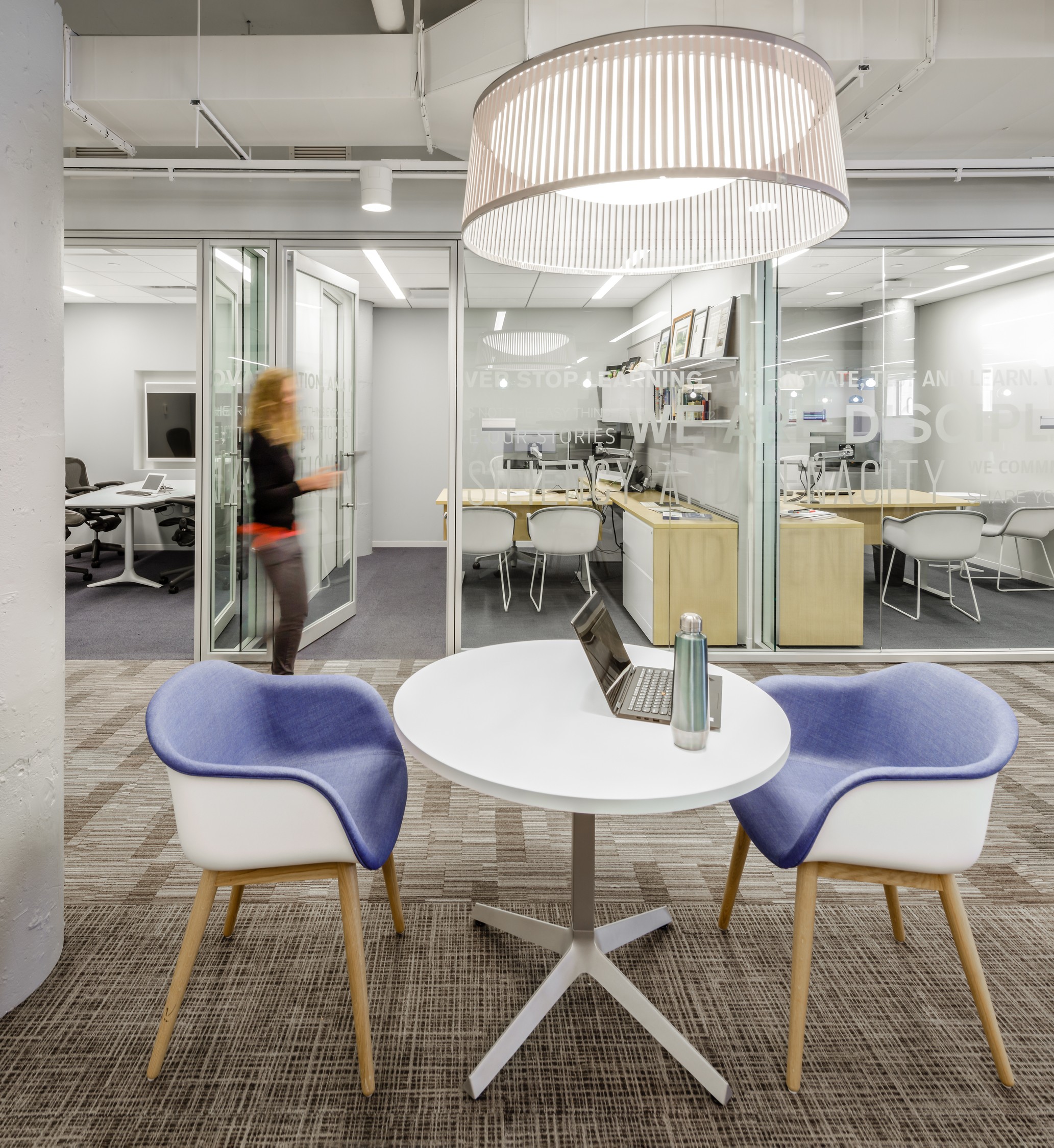These factors, along with the hyper-focus on maximizing expensive, urban real estate, pushed the industry to adopt free address office spaces years ago. Free address spaces have more flexible workstations, and limited assigned seating, meaning that when a workspace is unoccupied, it is available for use by other employees, requiring less total square footage. While fintech companies were the first to move to free address spaces, the rest of the corporate world can learn from their decision.
Learning from Fintech: The Importance of Choice
The rise of the information age has allowed for the simultaneous rise of fintech, a flourishing sector that uses technology to make finance and information more accessible to the general public. This burgeoning industry has had a massive impact on business and consumer behavior, but also on the workplace.
Traditional offices for financial institutions were designed around the idea of showcasing success through the use of conventional indicators of wealth, such marble surfaces, and elegant, formal workstations. However, with the growing influence of fintech, companies have had to compete for top, young talent that is well-versed in technology. Their office spaces have had to adapt to appeal to this talent pool, but also to be a space versatile enough to work more like a tech company and less like an old-fashioned financial firm.



